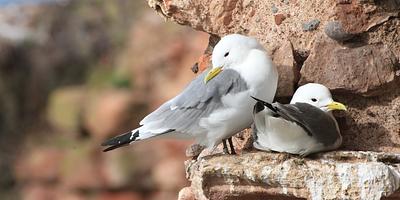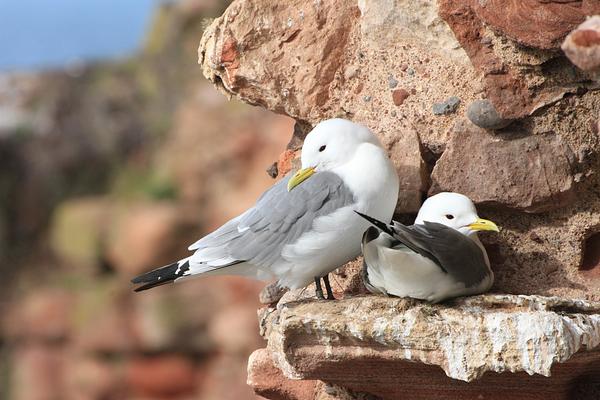
Climate Change
Climate change is undoubtedly the most urgent, overarching threat facing seabirds and the broader marine environment. The Intergovernmental Panel on Climate Change (IPCC) reports that global warming is likely to reach 1.5°C between 2030 and 2052 if it continues to increase at the current rate. In the IPCC Sixth Assessment Report, the current state of play is summarised:
'Climate change has caused substantial damages, and increasingly irreversible losses, in terrestrial, freshwater, cryospheric, and coastal and open ocean ecosystems (high confidence). Hundreds of local losses of species have been driven by increases in the magnitude of heat extremes (high confidence) with mass mortality events recorded on land and in the ocean (very high confidence).'
Marine environmental conditions
As 90% of the world’s global warming has been absorbed by the oceans, it is unsurprising that we are also seeing effects on the environmental conditions of our marine environment. The State of UK Climate Report showed that the number of ‘hot’ days (28C) has more than doubled and ‘very hot’ days (30C) more than trebled for the most recent decade (2014-2023) compared to 1961-1990. The overall effects on our marine environment include:
- A rise in mean sea temperatures
- A rise in sea levels
- An increase in sea water acidity (acidification)
- A decrease in the amount of oxygen available (deoxygenation)
- A pattern of increased frequency and intensity of weather extremes
- Loss of ‘climate space’ where conditions are suitable for species
- Increase in the conditions suitable for invasive non-native species
Consequences for marine wildlife
There are a wide range of effects on our marine habitats, wildlife and seabirds from these climatic changes. For example, acidification affects the ability of mollusc species, such as mussels and oysters, to develop their protective shells by reducing the process of calcification.
A pattern of increases in sea temperatures and intensity of storms have both indirect effects on our internationally important breeding seabirds through reductions in food availability and direct effects such as increases in the mortality of birds during extreme weather. For example, black-legged kittiwake, have declined by 70% since the mid-1980s, with the downward trend largely linked to a reduction in their main food supply, sandeels, as result of climate change.

